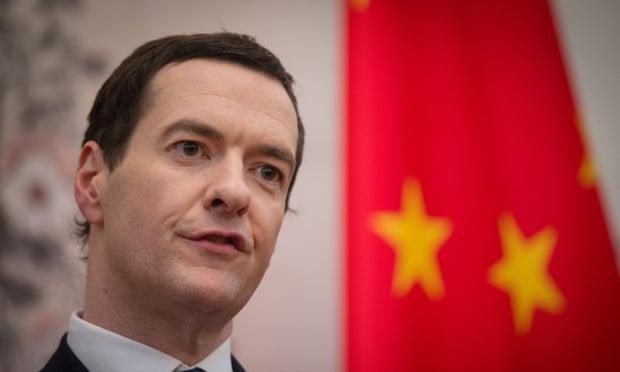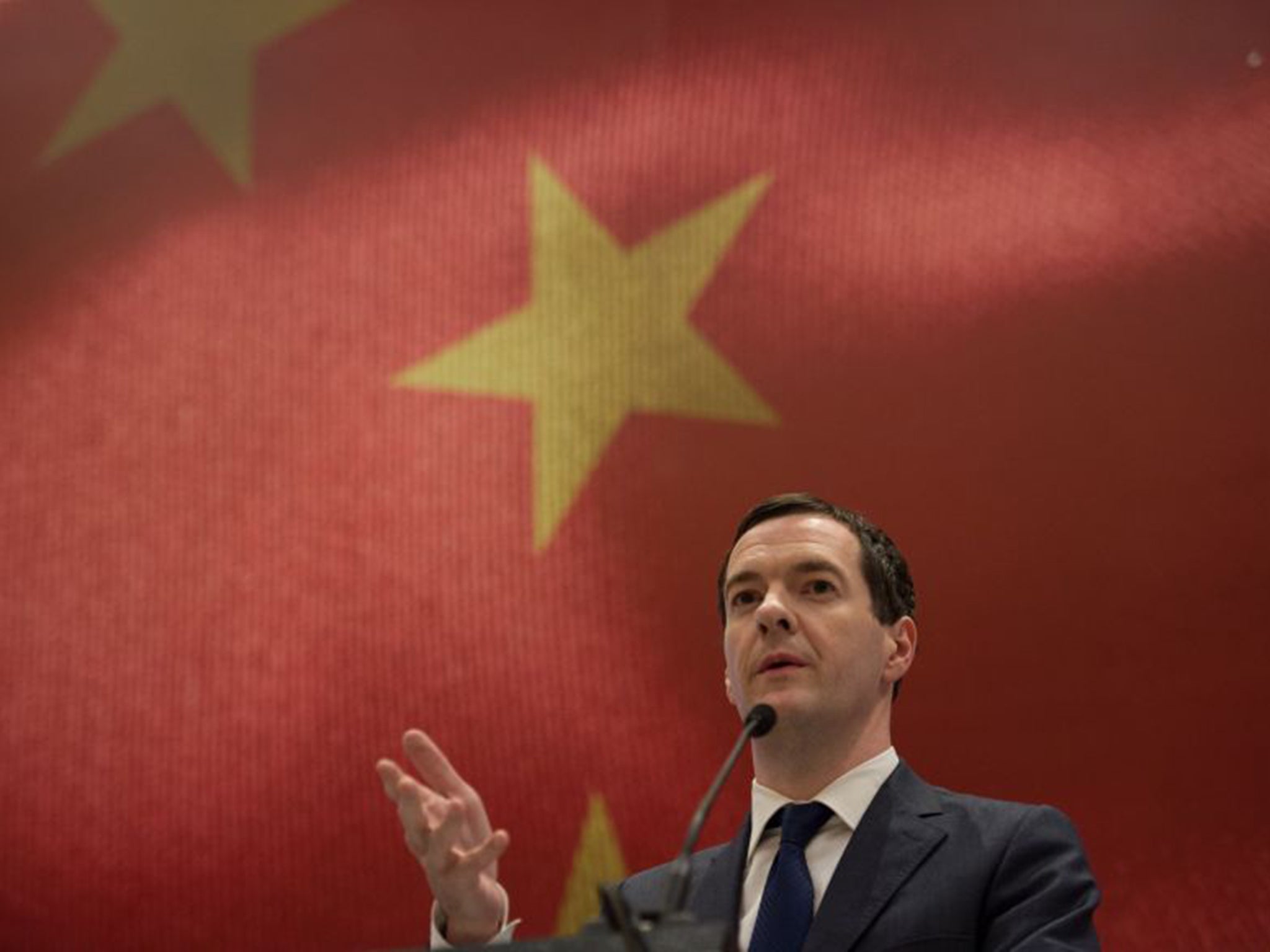George Osborne’s visit to China is
a new low
The visit was a triumph – for Beijing, which won a propaganda coup and a nuclear foothold in the UK



In case your heart isn’t already swelling with pride, an editorial in the Global Times described the Chancellor as “the first Western official in recent years who has stressed more the region’s business potential instead of finding fault over the human-rights issue”. Instead of making a song and dance about the country’s most famous political prisoner, Liu Xiaobo, our George was more intent on inviting the Chinese to take a major role in Britain’s nuclear industry.
Forget the fact that China isn’t exactly renowned for its expertise in nuclear technology. It would be sheer bad manners to question the wisdom of placing a key piece of infrastructure under the control of a foreign power whose interests, to put it mildly, might not always coincide with those of the UK. I can easily envisage a future in which British ministers might not show as much restraint on questions of human rights abuses or of cyber-espionage. Should we really place ourselves in the hands of a country that will be in a position to flick off the UK’s light switch? Getting Chinese investment in the UK trumps everything else, it seems – including our national security.
Britain isn’t the only country that’s extending a hand to China but it’s definitely edging ahead in the sycophancy stakes. The Prime Minister has refused to meet the Dalai Lama, who came to the UK last week, because he was so horrified by China’s furious reaction to their meeting in 2013; Cameron and Osborne don’t want to do anything that might upset next month’s state visit to London by the Chinese President, Xi Jinping. When he arrived in Washington two days ago, it was to a red-carpet welcome but there is said to be little personal warmth between him and President Obama. Last year, the US State Department said it was “deeply disturbed” by the death of Cao Shunli, a Chinese lawyer and human-rights activist who died in hospital after being denied medical treatment for several months.
The London visit promises to be very different, with British ministers hailed in the Chinese media for displaying “the vision of European politicians of a new generation”. The message is stark: Western leaders who want to do business with China need to shut up about democracy, free expression and the right to protest. The Obama administration is understandably reluctant to go along with this; China’s one-party state has changed a bit in recent years but nothing like enough to deflect criticism of its dreadful human-rights record.
According to Human Rights Watch, China’s government systematically curbs fundamental rights, including freedom of expression, association, assembly and religion. Since 2013, the country’s leadership has “unleashed an extraordinary assault on basic human rights and their defenders with a ferocity unseen in recent years”.
Bizarrely, this assault on fundamental rights has been accompanied by a mellowing in attitudes towards China. The Conservative Party is at the forefront, muting Britain’s critique of human-rights abuses until it reached last week’s historic low point. The Chancellor has played a key role in this process, which dates back to the autumn of 2013 when he led a trade mission to Beijing. “China is what it is,” Osborne said then. “We have to be here or nowhere.” He was accompanied by the Mayor of London, Boris Johnson, who is another enthusiast for trade links between the two countries.
Even Prince Charles seems to have been brought into line. Six months ago his elder son, Prince William, pitched up in China and delivered an invitation from the Queen for next month’s state visit to London. It was widely seen as an attempt to repair relations between China and the royals, which have been rocky since Charles refused an invitation to a banquet with a previous Chinese president during a state visit in 1999. Last month it was reported that Charles would meet President Xi and his wife, Peng Liyuan, and attend a lunch with the couple at Buckingham Palace.
This change of heart will have come as another blow to the Dalai Lama. It was first signalled in July when he came to the UK and made a slightly surreal appearance at Glastonbury festival, without receiving an invitation to meet the Prince. It’s well known that China loathes the Dalai Lama, who remains, despite his occasionally erratic behaviour, a powerful symbol of Tibet’s aspirations to independence.
Last week he told the BBC he would welcome a female successor but she would need to be “very attractive”; such forays into gender politics seem a tad unwise; perhaps the 80-year-old monk is feeling the pressure. The list of people who have refused to meet him recently includes Pope Francis and ministers in several European governments, suggesting that his political clout has diminished since he met 11 heads of state in 2002. Last week he said Cameron was interested only in “money, money, money”.
He could also have pointed out that recent events highlight the incoherence of Conservative foreign policy. Five years ago, Cameron sent British planes to bomb Libya, arguing that he had a moral duty to protect civilians and to do nothing would betray people striving for democracy. Now he’s keen to do business with one of the world’s most authoritarian regimes. Colonel Gaddafi must be turning in his grave; things could have been so different if only he’d offered to invest in the British nuclear industry.
No comments:
Post a Comment
Comments always welcome!